No products in the cart.
Sale
ABT-510 (CAS No. 251579-55-2) | Anti-Angiogenic Thrombospondin-1 (TSP) Analogue Peptide
Original price was: $36.00.$26.00Current price is: $26.00.
ABT-510 is a synthetic thrombospondin-1 (TSP-1) analogue peptide that exhibits strong anti-angiogenic and anti-inflammatory effects. By inducing apoptosis and suppressing angiogenesis, ABT-510 is valuable in cancer research, particularly ovarian cancer, as well as in studies of inflammatory bowel disease (IBD). For laboratory research use only.
Description
Product Description
ABT-510 is a synthetic peptide designed as a potent analogue of thrombospondin-1 (TSP-1), a multifunctional glycoprotein that naturally regulates cell-to-cell and cell-to-matrix interactions. Thrombospondin-1 plays an important role in angiogenesis, the process of new blood vessel formation, which is essential in both physiological and pathological conditions. ABT-510 captures the anti-angiogenic properties of thrombospondin-1 in a stable, biologically active peptide form, making it a highly valuable research compound.
Angiogenesis is a central mechanism underlying tumor growth and metastasis, as solid tumors require blood supply for continued proliferation. By mimicking thrombospondin-1 activity, ABT-510 blocks angiogenesis pathways, effectively starving tumors of nutrients and oxygen. Preclinical research has shown that ABT-510 induces apoptosis in tumor cells, reduces vascular density in tumors, and inhibits progression in animal models of epithelial ovarian cancer.
One of the key research advantages of ABT-510 is its dual role in both oncology research and inflammatory disease models. In cancer studies, ABT-510 reduces tumor angiogenesis, induces programmed cell death, and modulates tumor microenvironment interactions. In inflammatory bowel disease models, ABT-510 attenuates inflammation, reduces vascular infiltration, and suppresses immune-mediated tissue damage. These multifaceted effects make ABT-510 an important tool for understanding angiogenesis and apoptosis pathways in both cancer and chronic inflammation.
Structurally, ABT-510 is a 26-amino acid peptide engineered for stability and enhanced activity compared to the native thrombospondin protein fragment. Its design incorporates modifications that improve resistance to enzymatic degradation and extend its half-life in biological systems. This stability allows for more reproducible results in both in vitro and in vivo research.
Research applications of ABT-510 extend beyond ovarian cancer and IBD. It has been tested in preclinical models of melanoma, prostate cancer, and breast cancer, where angiogenesis plays a key role in tumor progression. Additionally, its ability to regulate vascular and immune responses makes it a candidate research tool in autoimmune disorders and wound healing studies.
ABT-510’s consistent anti-angiogenic activity makes it an excellent reference compound for evaluating new therapeutic peptides and small molecules targeting the angiogenesis pathway. It is frequently used in mechanistic studies to dissect signaling pathways involving CD36 and other receptors implicated in thrombospondin-mediated responses.
In summary, ABT-510 represents an important peptide research compound. As an optimized TSP-1 analogue, it enables scientists to investigate anti-angiogenic, pro-apoptotic, and anti-inflammatory mechanisms across multiple disease models. Its stability, reproducibility, and well-documented biological activities make it a cornerstone peptide in angiogenesis and cancer biology research.
Product Specifications
| Parameter | Details |
|---|---|
| Product Name | ABT-510 |
| CAS Number | 251579-55-2 |
| Synonyms | TSP-1 analogue peptide, Thrombospondin mimetic peptide |
| Molecular Formula | C___H___N___O___ (exact formula available upon request) |
| Molecular Weight | Available upon request |
| Appearance | White to off-white lyophilized peptide powder |
| Purity | ≥95% (HPLC confirmed) |
| Peptide Length | 26 amino acids |
| Formulation | Synthetic peptide |
| Solubility | Soluble in water, PBS, and DMSO |
| Storage | -20°C (long-term, lyophilized) |
| Stability | Stable for up to 24 months lyophilized; 2–3 weeks in solution at 4°C |
| Target Receptors | CD36 receptor, angiogenesis-related pathways |
| Activity | Anti-angiogenic, pro-apoptotic, anti-inflammatory |
| Applications | Cancer biology, angiogenesis studies, inflammatory disease research |
| Safety | For laboratory research use only; not for human or veterinary application |
Detailed Specifications Analysis
Molecular Structure: As a 26-residue peptide, ABT-510 includes modifications for stability and activity enhancement.
Purity & Quality Control: High-performance liquid chromatography (HPLC) ensures ≥95% purity, crucial for reliable reproducibility in experiments.
Storage & Handling: Lyophilized form ensures peptide integrity; aqueous reconstitution allows flexibility in assays.
Experimental Use: Appropriate for both in vitro cell culture assays and in vivo animal studies.
Receptor Targets: CD36 binding is central to ABT-510’s mechanism, disrupting endothelial cell survival signaling and triggering apoptosis.
Mechanism of Action & Research Applications
Mechanism of Action
ABT-510 primarily acts through the CD36 receptor, a known mediator of thrombospondin-1 activity on endothelial cells. By binding to CD36, ABT-510 inhibits endothelial cell proliferation and migration, two essential steps in angiogenesis. This blockade promotes apoptosis in endothelial cells, resulting in reduced blood vessel formation in tumor tissues.
Anti-Angiogenic Action: Prevents neovascularization by suppressing VEGF (vascular endothelial growth factor) pathways and disrupting endothelial survival signals.
Pro-Apoptotic Effect: Directly induces apoptosis in tumor-associated endothelial cells and tumor cells.
Immunomodulatory Role: Reduces inflammatory cytokine release, immune cell infiltration, and tissue damage in inflammatory bowel disease models.
Tumor Microenvironment Modulation: Alters interactions between tumor cells, stroma, and vascular structures, leading to impaired tumor growth and metastasis.
Research Applications
Cancer Research
Epithelial Ovarian Cancer: ABT-510 is widely studied in ovarian cancer models, where it suppresses angiogenesis and tumor progression.
Melanoma & Prostate Cancer: Preclinical studies demonstrate anti-tumor activity through endothelial cell apoptosis and microvessel reduction.
Combination Therapy Models: Often studied alongside chemotherapy or targeted agents to assess synergistic anti-angiogenic effects.
Inflammatory Bowel Disease (IBD)
In murine models, ABT-510 reduces vascular permeability, immune infiltration, and inflammatory damage.
Provides insight into the role of angiogenesis in chronic inflammation.
Autoimmune & Inflammatory Disorders
Potential relevance in conditions where aberrant angiogenesis contributes to pathology (e.g., rheumatoid arthritis).
Vascular Biology & Endothelial Studies
Serves as a reference compound for dissecting CD36-mediated pathways.
Useful for testing novel anti-angiogenic therapeutics in comparative assays.
Pharmacology & Toxicology Studies
Provides a model peptide to study the pharmacokinetics and pharmacodynamics of angiogenesis inhibitors.
ABT-510’s broad range of applications underscores its role as a versatile experimental peptide. By bridging oncology and inflammatory biology, it supports diverse lines of biomedical investigation.
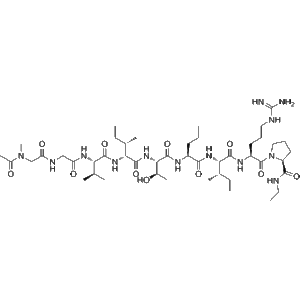
Side Effects
In preclinical studies, ABT-510 is generally well tolerated in animal models. However, as with any biologically active peptide, potential side effects must be considered in research contexts.
Observed or Potential Side Effects in Research Models
Local Reactions: Possible irritation or mild inflammation at injection sites.
Vascular Effects: Over-suppression of angiogenesis could impair wound healing or normal tissue repair.
Systemic Effects: High doses may cause fatigue, weight loss, or reduced activity in animal models.
Immune Modulation: Altered immune cell function due to reduced angiogenesis in inflamed tissues.
Metabolic Changes: Some evidence suggests shifts in glucose and lipid metabolism under chronic dosing.
Experimental Considerations
Dose Optimization: Proper titration is essential to avoid excessive suppression of physiological angiogenesis.
Model-Specific Responses: Effects may vary depending on tumor type, inflammation model, or animal strain.
Long-Term Exposure: Prolonged angiogenesis inhibition may interfere with tissue regeneration studies.
Combination Studies: When used alongside chemotherapy or immunotherapy, careful monitoring of synergistic toxicity is advised.
Overall, ABT-510 demonstrates a favorable safety profile in preclinical studies, but it must be handled with care to avoid unintended experimental confounders.
Disclaimer
For laboratory research use only. Not intended for human or veterinary use.
Keywords
ABT-510, thrombospondin-1 analogue peptide, anti-angiogenic peptide, ovarian cancer peptide research, IBD peptide research, CD36 peptide inhibitor, apoptosis-inducing peptide, angiogenesis peptide tool
Additional information
| Weight | 0.8 kg |
|---|---|
| Dimensions | 53 × 26 × 53 cm |
1 review for ABT-510 (CAS No. 251579-55-2) | Anti-Angiogenic Thrombospondin-1 (TSP) Analogue Peptide
What is ABT-510?
ABT-510 is a synthetic peptide analogue of thrombospondin-1 with anti-angiogenic properties.
What is its CAS number?
CAS No. 251579-55-2.
How does ABT-510 work?
It binds to the CD36 receptor, blocking angiogenesis and inducing apoptosis in endothelial and tumor cells.
What are its main research uses?
Cancer research (ovarian cancer, melanoma, prostate cancer) and inflammatory bowel disease models.
Is ABT-510 soluble in water?
Yes, it is soluble in water, PBS, and DMSO.
How stable is ABT-510?
Stable for 24 months in lyophilized form at -20°C, and for 2–3 weeks in solution at 4°C.
Can ABT-510 be used for human therapy?
No, it is strictly for laboratory research use only.
What receptors does it target?
Primarily the CD36 receptor involved in endothelial signaling.
Does ABT-510 affect inflammation?
Yes, it reduces vascular infiltration and cytokine release in inflammatory disease models.
Is ABT-510 a full protein or peptide fragment?
It is a 26-amino acid synthetic peptide fragment, optimized for stability and activity.

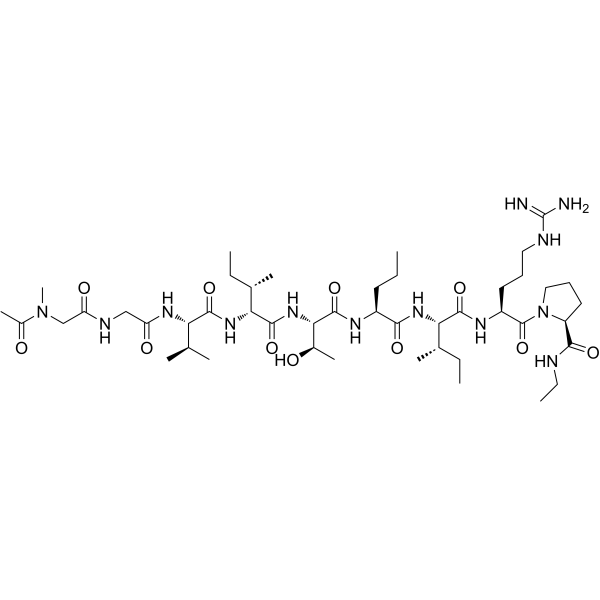

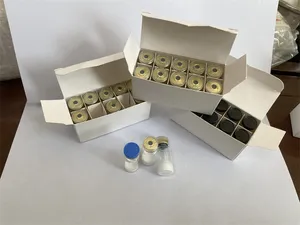
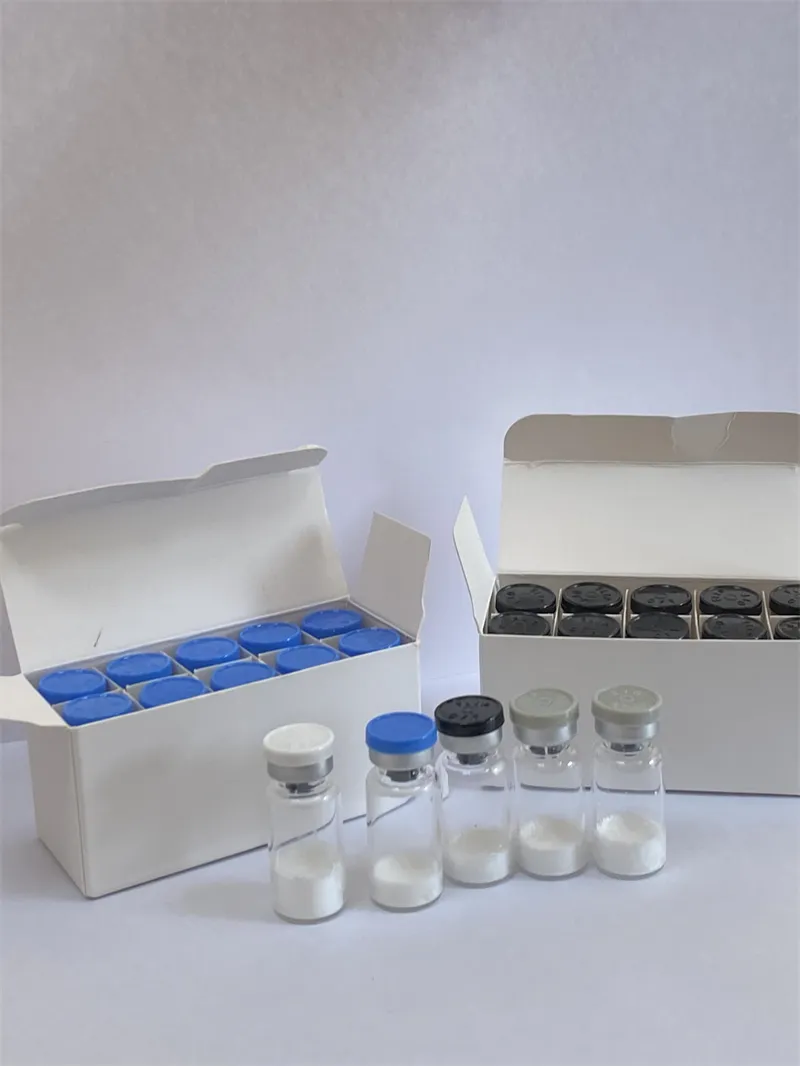
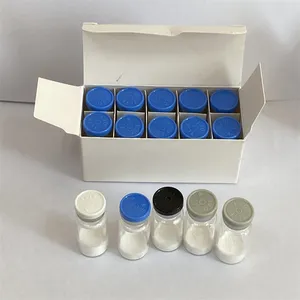


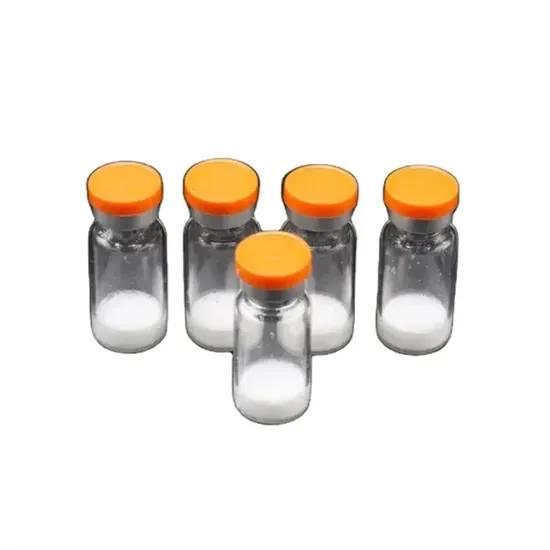
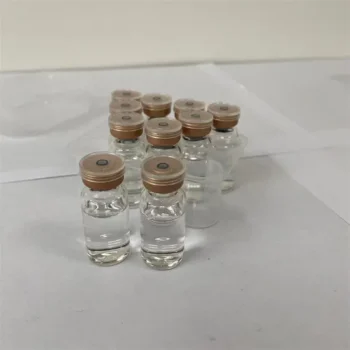
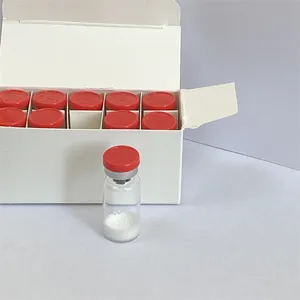
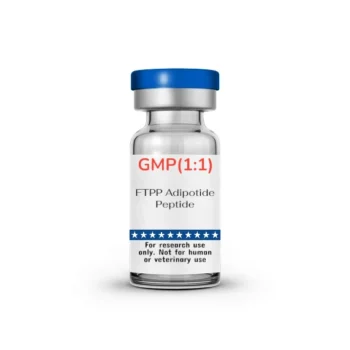
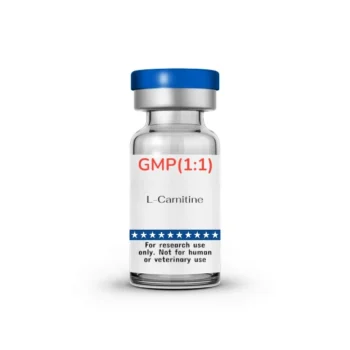
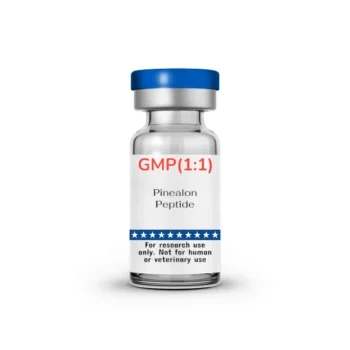
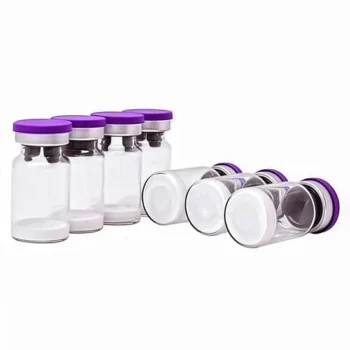

alexomajcen –
Ordering was easy, and delivery was timely. The product arrived well packaged and met our quality requirements.